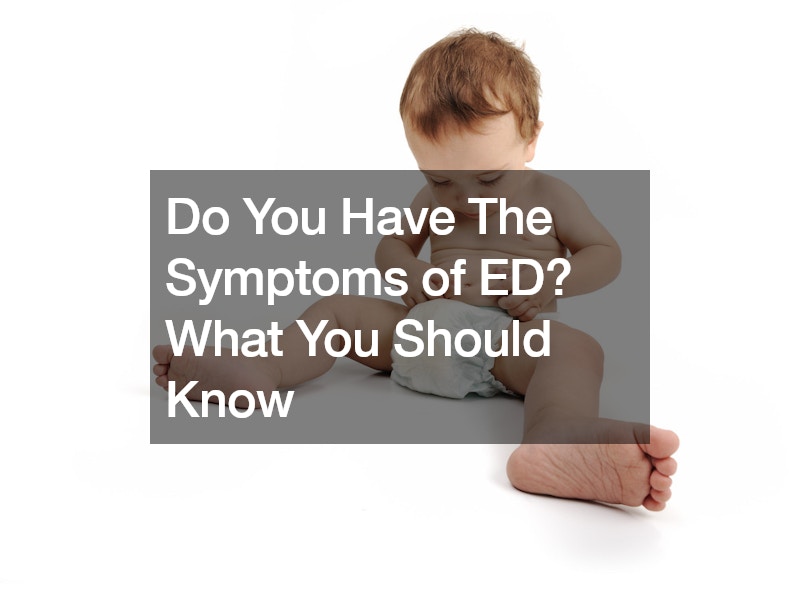Erectile Dysfunction (ED), though often a sensitive topic, is a common condition that affects many men worldwide. Defined as the inability to achieve or maintain an erection sufficient for sexual intercourse, ED can have various underlying causes and treatment options. Understanding the symptoms and seeking appropriate medical advice is crucial for addressing this issue effectively.
Symptoms of ED
Recognizing the symptoms of ED is the first step towards seeking help. The primary symptom is difficulty achieving or sustaining an erection during sexual activity.
However, other signs may accompany ED, including:
- Reduced Sexual Desire: Individuals with ED may experience a decreased interest in sexual activity due to anxiety or fear of performance issues.
- Difficulty Achieving Erection: Even with sexual stimulation, men with ED may find it challenging to attain an erection firm enough for intercourse.
- Inconsistent Erections: Erections that are not consistently firm or last long enough for satisfactory sexual activity may indicate ED.
- Premature Ejaculation: Some men with ED may also experience premature ejaculation, where ejaculation occurs shortly after penetration, further affecting sexual satisfaction.
- Stress and Anxiety: ED can lead to increased stress and anxiety related to sexual performance, leading to a cycle of worsening symptoms.
- Relationship Strain: Persistent ED can strain relationships due to frustration, disappointment, and feelings of inadequacy.
Causes of ED
Understanding the underlying causes of ED is essential for effective treatment. While it can be multifactorial, several common factors contribute to this condition:
- Medical Conditions: Chronic illnesses such as diabetes, heart disease, high blood pressure, and neurological disorders can affect blood flow and nerve function, leading to ED.
- Medications: Certain medications, particularly those used to treat high blood pressure, depression, anxiety, and prostate conditions, may have side effects that contribute to ED.
- Lifestyle Factors: Obesity, smoking, excessive alcohol consumption, and drug use can all increase the risk of developing ED by affecting cardiovascular health and overall wellbeing.
- Psychological Factors: Stress, anxiety, depression, and relationship problems can interfere with sexual function and contribute to ED.
- Hormonal Imbalances: Low testosterone levels or hormonal imbalances can impact libido and erectile function, leading to ED.
Evaluation and Diagnosis
Seeking medical evaluation is crucial for accurately diagnosing ED and identifying any underlying health conditions. A healthcare provider will typically conduct a thorough medical history review and physical examination to assess symptoms and potential risk factors. Additionally, diagnostic tests such as blood tests, urine tests, and specialized penile ultrasound may be performed to evaluate blood flow and hormone levels.
Treatment Options
Fortunately, several effective treatments are available for ED, ranging from lifestyle modifications to medical interventions:
- Lifestyle Changes: Adopting a healthy lifestyle that includes regular exercise, a balanced diet, stress management, and avoiding tobacco and excessive alcohol consumption can improve erectile function.
- Medications: Oral medications such as sildenafil (Viagra), tadalafil (Cialis), and vardenafil (Levitra) are commonly prescribed to enhance blood flow to the penis, facilitating erections.
- Therapies: Therapeutic approaches such as psychotherapy, cognitive behavioral therapy (CBT), and couples counseling may be beneficial, especially when ED is related to psychological factors or relationship issues.
- Hormone Therapy: In cases where hormonal imbalances contribute to ED, hormone replacement therapy (HRT) or testosterone supplementation may be recommended to restore hormonal levels.
- Vacuum Devices and Penile Implants: Mechanical devices like vacuum erection devices (VEDs) and penile implants can help achieve and maintain erections by creating a vacuum or providing artificial rigidity to the penis.
Natural Remedies and Supplements for Erectile Dysfunction offer alternative approaches for managing symptoms. Some herbs like ginseng, horny goat weed, and L arginine have shown promise in improving blood flow and enhancing sexual function. Additionally, vitamins such as vitamin D and zinc may play a role in supporting overall sexual health. Lifestyle changes like regular exercise, maintaining a healthy weight, and reducing stress can also positively impact ED symptoms. However, it’s crucial to approach these remedies with caution and consult with a healthcare professional before trying them, as their effectiveness and safety vary, and they may interact with other medications or health conditions.
Seeking Help for ED
If you suspect you may have symptoms of ED, it’s essential to seek medical advice promptly. Discussing your concerns openly and honestly with a healthcare provider is the first step towards diagnosis and treatment. Remember that ED is a treatable condition, and with the right approach, you can regain confidence and enjoy a fulfilling sex life.
In conclusion, understanding the symptoms, causes, and treatment options for ED is essential for men who may be experiencing this condition. By seeking medical evaluation and exploring appropriate ED treatments, individuals can address ED effectively and improve their quality of life and overall wellbeing. Don’t let ED impact your confidence or relationships—take proactive steps to address it and regain control of your sexual health.
.


